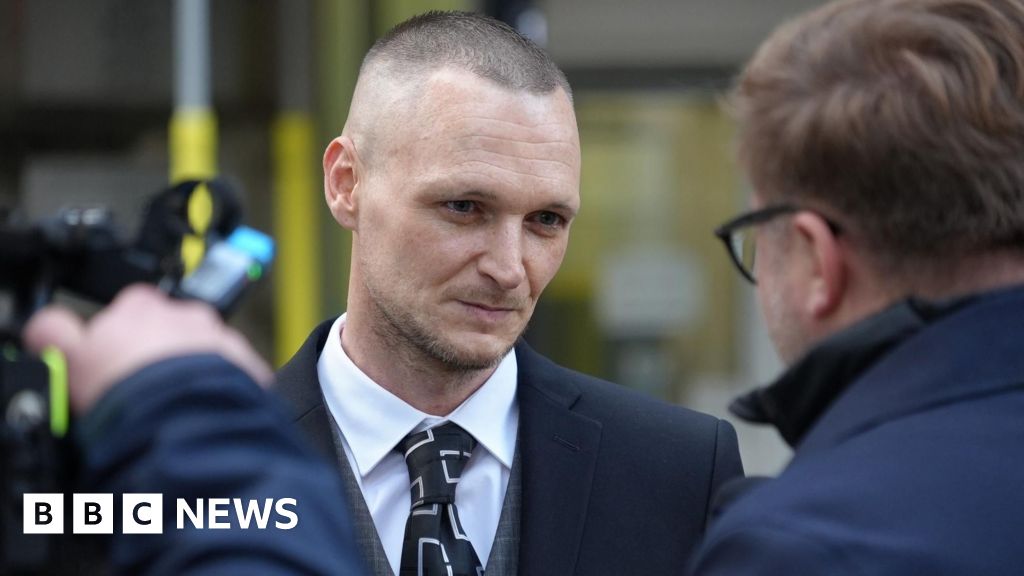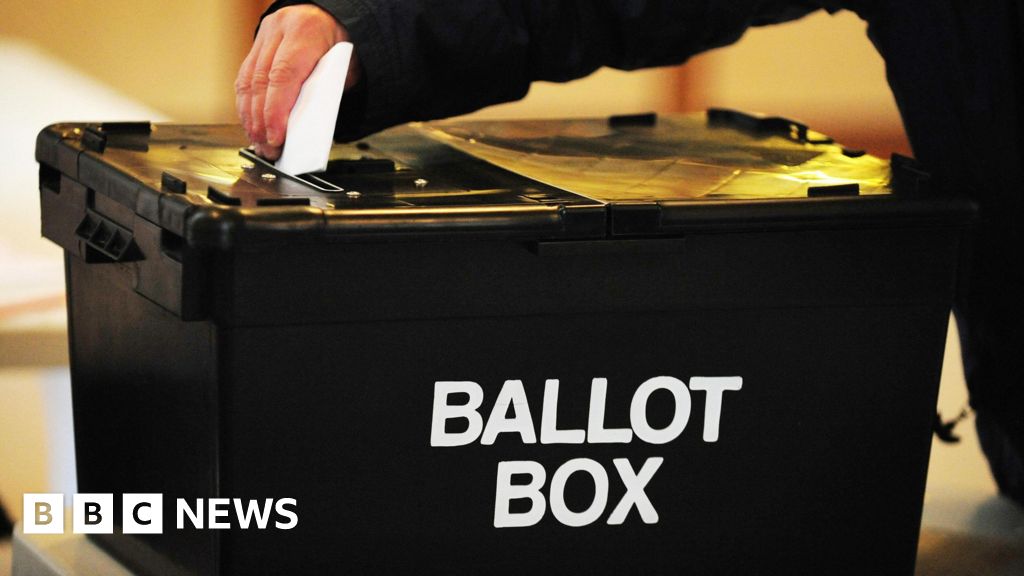Professor Vaughan Lowe KC, counsel and advocate, told the International Court of Justice (ICJ) on Thursday genocide can never be justified.
Madame President, members of the court: it is a privilege to appear before you, and an honour to do so on behalf of the Republic of South Africa.
This case is brought under Article IX of the Genocide Convention, which entitles any Contracting Party to the Convention to submit to the court disputes relating to the interpretation, application or fulfilment of the Convention.
The court does not at this stage have to determine whether or not Israel has or has not acted contrary to its obligations under the Genocide Convention. That can only be done at the merits stage. It is concerned now only with the question of what provisional measures are required pending its final decision on the merits.
The court's requirements for the ordering of provisional measures
The court's jurisprudence points to five requirements for the ordering of provisional measures.
The first is that there be prima facie jurisdiction. That was addressed by Professor Dugard.
The second is that there should be a link between the measures requested and the rights underlying the main claim. This requirement is plainly satisfied. The measures request an order that Israel does not violate the very rights secured by the Genocide Convention, as set out in South Africa's application.
The third is the plausibility of the rights that are claimed. Professor du Plessis explained that this is clearly satisfied. The rights claimed are the very core of the Convention: notably the right not to be killed or seriously harmed, and the right of the group not to be physically destroyed.
READ | SA's ICJ case hailed impressive as govt rejects claims it is doing Hamas’ bidding
Fourth and fifth, there must be a risk of irreparable prejudice capable of arising prior to the final determination of the dispute, and there must be urgency. Ms Ní Grálaigh addressed those points. Israel has for over three months been mounting a continuous siege and bombardment of Gaza of a ferocity and duration that can only be seen as an attempt to destroy Gaza and its citizens; and it is publicly asserting that it will continue to do so. You are aware of the scale of the death and the scale of the destruction. And it is continuing at this very minute.
The court has said that "a State's obligation to prevent [sc., genocide], and the corresponding duty to act, arise at the instant that the State learns of, or should normally have learned of, the existence of a serious risk that genocide will be committed. From that moment onwards, if the State has available to it means likely to have a deterrent effect on those suspected of preparing genocide, or reasonably suspected of harbouring specific intent…, it is under a duty to make such use of these means as the circumstances permit." That is what South Africa has done by making this application.
The court's approach to provisional measures: protection of individuals
In cases such as LaGrand, Avena, and Jadhav this court has exercised its power to order provisional measures having regard not only to the impact of provisional measures on the States Parties to a case, but also to the impact on the individuals directly affected and their rights. It has issued orders to restrain States from killing individuals in a manner alleged to violate international law. That is what South Africa is requesting, after more than 22,000 individuals have already been killed in the siege and bombardment, the overwhelming majority of them innocent men, women and children.
The court's approach to provisional measures: protecting the Integrity of the court's procedures
The court also issues orders so as to safeguard the integrity of its proceedings and the efficacy of its final ruling. In the Bosnia Genocide case, for example, you ordered that the parties "not take any action and … ensure that no action is taken which may aggravate or extend the existing dispute over the prevention or punishment of the crime of genocide, or render it more difficult of solution. Without such non-aggravation orders, there is a real risk that a respondent will rush to complete its unlawful conduct before the court's final ruling, thus rendering the ruling, and the court, an irrelevance.
The limited scope of South Africa's request for provisional measures
South Africa's application has kept within the scope of the Convention.
First, some will ask why South Africa does not seek any court order against Hamas. This case concerns Israel's action in Gaza, which is territory that, three weeks ago in Resolution 2720, the Security Council stressed is "an integral part of the territory occupied in 1967" by Israel. As the court will understand, Hamas is not a State and cannot be party to the Genocide Convention; and it is not a party to these proceedings. There are other bodies and processes that can address the questions of steps to be taken in respect of past atrocities and against other actors; and they are no doubt doing so. But as a matter of law, under the Convention South Africa cannot request an order from this court against Hamas.
Secondly, South Africa understands that not all violence constitutes genocide. Acts of ethnic cleansing, collective punishment, the targeting of civilians, attacks on hospitals, and other war crimes are all unlawful: but they do not always violate the Genocide Convention. Genocide requires an intent to destroy, in whole or in part, a national, ethnical, racial or religious group. But the fact that what Israel is doing in Gaza may also constitute war crimes or crimes against humanity is no defence to a charge of genocide.
South Africa has set out its request for relief in paragraph 111 of its application, and its request for provisional measures in paragraph 144.
The specific provisional measures requested by South Africa16. The reasoning behind the requests is pragmatic. The first two paragraphs of the provisional measures request call for the suspension of Israel's military operations in and against Gaza.
Israel's continuing operation in Gaza since the 7 October attack is the focus of this case. The Agent has recalled the fact that South Africa has condemned the 7 October attack. Israel says that Palestine and Palestinians are not its target, and that its aim is to destroy Hamas. But months of continuous bombing, flattening entire residential blocks and cutting off food and water and electricity and communications to an entire population, cannot credibly be argued to be man-hunt for members of Hamas. It is an indiscriminate attack, killing, maiming and terrorizing the entire population of Gaza with no regard to questions of innocence or guilt, obliterating the homes and cities in which they live, and destroying any practical possibility of their return to make their homes amidst the rubble.
Israel's action both attacks Palestinians in Gaza directly, and also prevents humanitarian relief reaching them. Palestinians face death from the continuing bombardments and shootings, and death from starvation and disease, which is even more indiscriminate, but usually slower.
In recent days the United States has said again that far too many civilians are being killed; and the UN Secretary General, the United Nations Under Secretary for Humanitarian Affairs and the Commissioner-General of UNRWA have asserted that it is imperative to halt military operations in order to enable the effective delivery of humanitarian relief. Even yesterday, the UN reported that repeated refusals by Israeli authorities to allow UN aid teams to deliver desperately needed humanitarian relief inside Gaza have effectively cut off five hospitals in the north from access to "lifesaving medical supplies and equipment".
That is why South Africa has requested an order for the immediate suspension of Israel's military operations in and against Gaza. It is the only way to secure the humanitarian response and avoid yet more unnecessary death and destruction.
There is a point to emphasize. It is no use Israel saying that it does whatever it can to minimise the deaths of innocent men, women and children. The use of 2000 pound bunker-busting bombs and dumb bombs in residential areas, and the relentless bombardment of Gaza, and even of so-called 'safe areas' to which Palestinians have been directed by Israel, tell another story. But that is not the only point. It is not just a question of scale and of indiscriminate killing. It is also a question of intention.
If any military operation, no matter how it is carried out, is carried out pursuant to an intention to destroy a 'people’, in whole or in part, it violates the Genocide Convention, and it must stop. That is why all military operations capable of violating the Genocide Convention must cease.
The third request is for an order that both Israel and South Africa, in accordance with their obligations under the Genocide Convention in relation to the Palestinian people, to take all reasonable measures to prevent genocide.
The fourth and fifth measures then spell out these general obligations in terms of the specific instances of offences listed in Articles II and III of the Convention.
The sixth requested measure addresses the fact that, aside from its own acts, the Government of Israel is legally bound to prevent and punish others who engage in or incite or actively support conduct that violates the Genocide Convention. Until the reported intervention of the Attorney General 36 hours ago, Israeli authorities appear to have done nothing to stop the flow of genocidal rhetoric, including statements from the ranks of public officials. Indeed, the toleration, even normalization, of such incitement has become a matter of concern within Israel itself. That is why this measure is sought.
This case is important. Lives are at stake. Israel's credibility and reputation are at stake. Yet evidence that could determine whether or not particular acts violate the Genocide Convention is being lost or destroyed, while fact-finders and foreign journalists are unable to report freely from Gaza. Hence the seventh request, which is for an order directing the preservation of evidence.
Finally, South Africa asks that the court require specific reports from Israel on what it is doing to implement the order. General assurances are not enough. Reports, published via the court, are an essential element of accountability.
The exercise of the right of self-defence cannot justify or be a defence to genocide
I should address the question of self-defence. In its Advisory Opinion in the Wall case the court noted that the threat that Israel argued justified the construction of the Wall was not imputable to a foreign State, but emanated from territory –the Occupied Palestinian Territory – over which Israel itself exercises control. For those reasons the court decided that as a matter of international law the right of self-defence under Article 51 of the UN Charter had no relevance in such circumstances.
Twenty days ago the Security Council affirmed yet again that Gaza is occupied territory. Though Israel refers to a complete withdrawal from Gaza, it has retained control over Gaza – over access by land, sea and air, and over key governmental functions and supplies of water and electricity. The tightness of its grip may have varied; but no-one can doubt the continuous reality of Israel's grip on Gaza. The court's legal holding from 2004 remains good.
A similar point is to be made here. What is Israel is doing in Gaza, it is doing in territory under its own control. Its actions are enforcing its occupation. The law on self-defence under Article 51 of the Charter has no application. But that is not the main point.
The main point is much simpler. It is that no matter how outrageous or appalling an attack or provocation, genocide is never a permissible response. Every use of force, whether used in self-defence, or in enforcing an occupation, or in policing operations, must stay within the limits set by international law, including the explicit duty in Article I of the Convention to prevent genocide.
READ | 'Nothing can justify genocide': SA says Israel's self-defence claims can’t excuse Gaza abuses
South Africa believes that the publicly-available evidence, of the scale of the destruction resulting from the bombardment of Gaza, and the deliberate restriction of the food, water, medicines and electricity available to the population of Gaza demonstrates that the Government of Israel – not Jewish people or Israeli citizens: the Government of Israel and its military – is intent on destroying the Palestinians in Gaza as a group, and is doing nothing to prevent or punish the actions of others who support that aim.
The point is not simply that Israel is acting 'disproportionately': the point is that the prohibition on genocide is an absolute, peremptory rule of law. Nothing can ever justify genocide. No matter what some individuals within the group of Palestinians in Gaza may have done, and no matter how great the threat to Israeli citizens might be, genocidal attacks on the whole of Gaza and the whole of its population with the intent of destroying them cannot be justified.
And no exception can be made in a provisional measures order to allow a State to engage in actions that violate its obligations under the Genocide Convention. It is unthinkable that a court would ever do such a thing. That is the simple point in this case: genocide can never be justified in any circumstances.
Israel's actions will be examined closely and methodically at the merits stage, when the court will want to hear what Israel has to say in its defence. What matters now is that the evidence indicates that Israel's actions have violated its obligations under the Genocide Convention, that they continue to violate them, and that Israel has asserted that it intends to continue them.
Unilateral undertakings are not enough
Israel may say that it will comply with all of its obligations under the Genocide Convention and that these orders from the court are not necessary. But in previous cases the court has held that such unilateral statements do not remove the risk of irreparable prejudice or obviate the need for a court order.
In this case, one reason for doubting the efficacy of any such a unilateral undertaking is Israel's apparent inability to see that there it has done anything wrong in grinding Gaza and its people into the dust.
Another reason is that a departure from or reinterpretation of any unilateral undertaking by Israel may lead to consequences so appalling that the risk should not be taken.
READ | SA's ICJ case hailed impressive as govt rejects claims it is doing Hamas’ bidding
But there is a third reason. As was noted during the submissions to this court in the case concerning Reservations to the Genocide Convention in 1951, "the obligation to submit disputes concerning the interpretation or execution of the Convention to the International court of Justice was regarded as one of the prime guarantees of the due fulfilment of the basic obligation to prevent and punish the crime of genocide."
The role of the court which, unusually, extends not only to the interpretation but also to the application and fulfilment of the Convention, is pivotal. In addition to their substantive obligations under the Convention, it is vitally important that States respect the court and their procedural obligations.
This is not a moment for the court to sit back and be silent. It is necessary that it assert its authority, and itself order compliance with the obligations under the Genocide Convention. Indeed, it is hard to think of a case in recent history which has been so important for the future of international law, and of the court.
That concludes my submission. Unless I can assist the court further, Madam President, I ask that you call upon South Africa's Agent to read its request for relief.
 (1).png)
 11 months ago
41
11 months ago
41


















